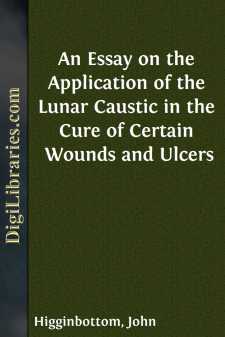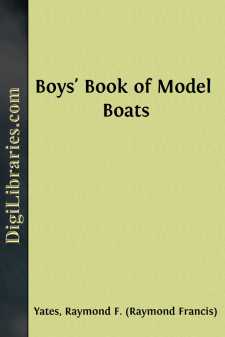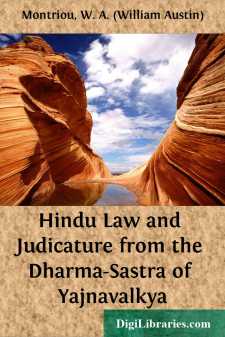Non-Classifiable
- Non-Classifiable 1768
Non-Classifiable Books
Sort by:
CHAPTER I. ON HEALING BY ESCHAR. Having been led, by several circumstances, to try the effects of the Lunar Caustic in the treatment of Wounds and Ulcers, and having great reason, from these trials, to think that this remedy may be used with much advantage far more extensively than has hitherto been done, I lay the results of my experience before my medical brethren. A very natural mode of healing...
more...
WHY A BOAT FLOATSBEFORE taking up the construction of any of the model power boats described in this book, it will be well for the young boat-builder to become acquainted with such terms as buoyancy, displacement, center of gravity, etc. Knowledge of these subjects is more or less necessary if successful boats are to be made. Aside from this, they are terms that every boy who claims an interest in...
more...
by:
Jane Addams
CHAPTER I YOUTH IN THE CITY Nothing is more certain than that each generation longs for a reassurance as to the value and charm of life, and is secretly afraid lest it lose its sense of the youth of the earth. This is doubtless one reason why it so passionately cherishes its poets and artists who have been able to explore for themselves and to reveal to others the perpetual springs of life's...
more...
I INTRODUCTION It has frequently been said that desertion is the poor man's divorce but, like many epigrams, this one hardly stands the test of experience. When examined closely it is neither illuminating nor, if the testimony of social case workers can be accepted, is it true. It is true, of course, that many of the causes of domestic infelicity which lead to divorce among the well-to-do may...
more...
by:
Giles Gossip
§ 1. ANECDOTES OF THE REGALIA AND ROYAL VESTMENTS. "History—the picture of man—has shared the fate of its original. It has had its infancy of Fable; its youth of Poetry; its manhood of Thought, Intelligence, and Reflection."—Anon. No. 1. The Regal Chair. The Regalia of England are the symbols of a monarchical authority that has been transmitted by coronation ceremonies for upwards of ten...
more...
by:
Sarah Tytler
CHAPTER I. SIXTY-THREE YEARS SINCE. The 24th of May, 1819, was a memorable and happy day for England, though like many such days, it was little noticed at the time. Sixty-three years since! Do many of us quite realise what England was like then; how much it differed from the England of to-day, even though some of us have lived as many years? It is worth while devoting a chapter to an attempt to recall...
more...
JIM WAINRIGHT'S KID As I put down my name and the number of the crack engine of America—as well as the imprint of a greasy thumb—on the register of our roundhouse last Saturday night, the foreman borrowed a chew of my fireman's fine-cut, and said to me: "John, that old feller that's putting on the new injectors wants to see you." "What does he want, Jack?" said I....
more...
THE INITIATIVE AND REFERENDUM IN SWITZERLAND. Democratic versus Representative Government. There is a radical difference between a democracy and a representative government. In a democracy, the citizens themselves make the law and superintend its administration; in a representative government, the citizens empower legislators and executive officers to make the law and to carry it out. Under a...
more...
THE STOLEN TREASURE There is a certain little girl who sometimes tries to find out when I am not over busy, so that she may ask me to tell her a story. She is kind enough to say that she likes my stories, and this so flatters my vanity that I like nothing better than telling them to her. One reason why she likes them, I suspect, is that they are not really my stories at all, the most of them. They are...
more...
Of the above list, twenty (distinguished by one cross) are in Yájnavalkya's list: seventeen of these are named by ParáÃ
âºara, viz. all except Yama, Brihaspati and Vyása, instead of whom he gives KaÃ
âºyapa, Gárgya and Prachetas: the Padma Puráá¹â¡a gives those named by Yájnavalkya, with the exception of Atri, and seventeen others, (distinguished by two crosses) three...
more...











